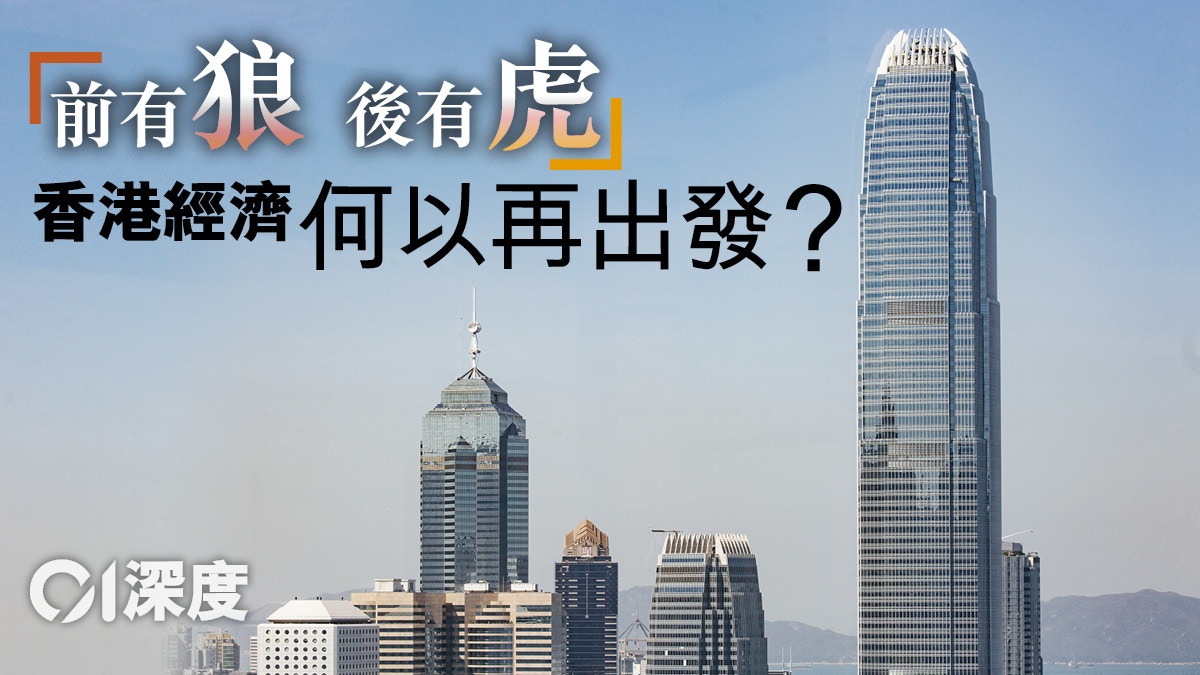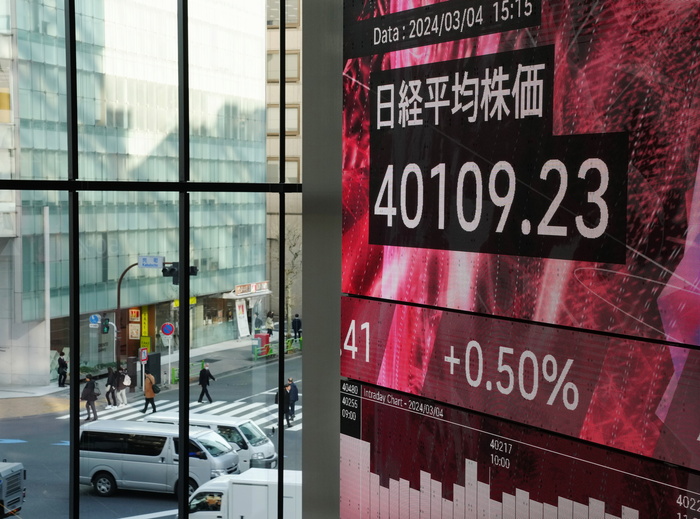weekly
Writer: Special writer
2020-11-03 07:00
Last update date: 2020-11-03 07:00
The U.S. election is approaching, and the world political and economic landscape is facing a reshuffle. Where does the U.S. domestic economic policy go, and how will its changes affect Hong Kong’s economic development?
Written by: Deng Xiwei, Lin Kangsheng
The US election is approaching, and the world political and economic landscape is facing a reshuffle.
(Associated Press)
Trump Economics advocates lowering tax rates, reducing government supervision, controlling immigration, and leading the return of US manufacturing; unilateral protectionism to outsiders.
If the "election surprise" happens again four years ago, the new energy sector, which has recently been sought after by global capital, will take off, Sino-US relations will heat up in the short term, global geopolitics will heat up, and fossil energy will once again be affected by the market. Favor.
On the contrary, Biden's current positioning is a bit awkward.
With the global populism prevailing and the left and the right are extremely divided, Biden is a moderate establishment in embracing the liberal and open Democratic Party.
We can expect him to be elected to attach importance to the concept of "Environmental, Social, Governance" (ESG, namely Environmental, Social, Governance) and follow a leftist policy; to be bound by the party and domestic hawks to the outside world as a "chariot of the new Cold War" and freedom Send realism, focusing on maximizing the interests of Washington through diplomacy and multilateral relations, and its relations with China are both enemies and friends.
The author can foresee that new energy and infrastructure-related industries will benefit.
Industries such as fossil energy, medicine and finance were affected. Biden first introduced environmental protection policies and expanded Obamacare.
No matter which candidate is elected, the United States and its allies will inevitably become tougher on China policy, although there may be differences in form and means.
When the United States regards Hong Kong as a bargaining chip in the Sino-US trade war and the "new cold war," the country will not easily make concessions and compromises. It can foresee that Hong Kong will continue to be suppressed and sanctioned, like a hunter catching prey.
The predicament facing Hong Kong is that "there are wolves before and tigers afterwards". The financial, trading and logistics industries bear the brunt.
Tokyo, Singapore and London all hope to carve up the "legacy" of Hong Kong's economic development.
Recently, Japan’s Deputy Prime Minister and Minister of Finance Taro Aso even opened his mouth, saying that the weakening of Hong Kong’s attractiveness is an opportunity for Japan. Japan will study the establishment of a special banking special economic zone, hoping to attract Hong Kong talent and business.
Such as this, Hong Kong's economy will stop?
Professor Tang Xiwei, a professor of economics at the School of Economics and Management of the University of Hong Kong, predicted that the United States will continue to suppress and sanction Hong Kong.
(Photo/Photo by Luo Guohui)
Treasure hunt in the "double loop", the new track of "big data" starts again
Under the attack of three major local and global factors, including social movements, the new crown pneumonia and the Sino-US game, Hong Kong is not optimistic about regaining economic growth in the short to medium term.
Given that the "Job Protection Plan" is about to end, coupled with the recent large-scale layoffs of large companies, it is bound to cause ripples of layoffs in their supply chain.
The government’s unemployment figures have always been lagging behind, and the real local unemployed population may have already reached double-digit numbers, and the people’s livelihood has fallen into distress.
During the "14th Five-Year Plan", the country advocated the dual cycle as a new economic engine to drive the growth of the three-headed carriage (export, consumer demand, and investment).
George Magnus, a researcher at the Institute of China Studies at the School of Oriental and African Studies at the University of London and the Institute for China Center at Oxford University, pointed out that the double cycle is part of the "Made in China 2025" industrial strategy.
The first is the advantage of being a latecomer, which is faster than the technological innovation and industrial upgrading of developed countries; the second is the advantage of changing lanes and overtaking. Domestic and foreign needs promote each other and strengthen the new industrial revolution period (development of 5G, semiconductor and Cloud services, etc.), arduous reforms will ultimately benefit domestic domestic demand.
China sees a more pressing political and national security agenda, and uses the current political and economic differences and interference in Washington to accelerate the decoupling of China and the United States and reduce its dependence on American high-tech products.
Hong Kong must cooperate with the overall development of the country's dual cycle.
(Photo/Photo by Ou Jiale)
During the game between China and the United States, Hong Kong, as a member of China, can only choose sides to cooperate with the overall development of the country's dual cycle.
Some people think that Hong Kong's role will be marginalized. The author believes that Hong Kong has always been an export-oriented economy, and it will be eliminated sooner or later if it does not keep pace with the times.
In the past few decades, Hong Kong has relied on the four pillar industries to develop, but when the world economy changed drastically, the popular banking stocks would not pay dividends one day, and their stock prices could not sink.
Just like the dilemma Hong Kong is facing now-when the old blue-chips and the old economy exit the market, sitting on a landslide is not the best policy.
Based on the general election situation in the United States and in line with national policies, the author earlier suggested that Hong Kong should re-industrialize as the main axis of the third economic transformation and regain its growth momentum.
The focus of the development of Hong Kong’s industries should first start with comparative advantage industries (such as finance and healthcare) and establish high-tech manufacturing.
Online banking, big data, and financial technology are the new economic trends in the future, and they are also the focus of the dual cycle, which uses data flow to drive the flow of technology, capital and talent.
One of the projects that can be considered for increased development is the Data Center (IDC).
Hong Kong has a competitive advantage in data centers, and its telecommunication infrastructure facilities and international bandwidth connection capabilities have reached the world's first standard level.
Coupled with the country's vigorous efforts to strengthen independent research and development, domestic data center demand is bound to increase significantly.
According to DTZ Research, the overall transaction volume from 2018 to 2020 (the first 8 months) has reached US$5.7 billion, which is 7.2 times that of the same period in 2015 to 2017. Hong Kong ranks among the most attractive data center locations in the Asia-Pacific region Fourth, it follows Singapore, Sydney and Tokyo.
For example, Xinyi.com (1686), the leader of the "local ginger" data center, is under the umbrella of Xindi (16). It uses the old economy to drive the new economy and develops under the effect of synergy and scale, which proves that Hong Kong has the ability and resources to develop the big data industry chain.
Hong Kong's industrial structure reform can drive economic recovery.
(Photo/Photo by Ou Jiale)
In recent years, Hong Kong's youth have insufficient opportunities for the upper class. One of the reasons is the lack of diversified outlets in Hong Kong.
Driven by demand, most of the top talents are engaged in banking and professional industries. It is difficult for other young people to find a platform to give full play to their strengths, leading to a loss of talents, which is detrimental to the development of entrepreneurship and entrepreneurship in Hong Kong in the long run.
In view of this, the University of Hong Kong also cooperated with this development vision last year and launched an inter-disciplinary undergraduate course in financial technology to build and cultivate a "future talent pool" for Hong Kong and solve the talent shortage in the high-tech new economic industry chain.
In recent years, the author has also noticed that traditional real estate developers and some large enterprises have launched innovative departments and invested in start-up development and new businesses. The author hopes that it is more than just a "pond of fish."
The creation of shared value (CSV) that Harvard Business School professor Michael Porter advocates is not just about corporate social responsibility (CSR), and careful planning can also create sustainable ESG business value for the company.
In order for Hong Kong to succeed in reindustrialization, apart from the support of the business community, it also needs the government's scientific research policy support and long-term financial support.
As such, Hong Kong, as China's most open city, can not only play a role and contribute to the dual cycle, but also blaze a trail for Hong Kong, reform its industrial structure, and drive economic recovery.
Deng Xiwei
Professor of Economics, School of Economics and Management, Hong Kong University, Deputy Director, Hong Kong Institute of Economics and Business Strategy
Lin Kangsheng
Research Assistant, Hong Kong Institute of Economics and Business Strategy
Insight into the new normal of "political correctness" of the next US president's China policy
U.S. Election 2020|The latest economic data released on the eve of the election, Trump finished his final economic card
[Industrial Policy] Competitive advantages will soon disappear. Why is Hong Kong's technology industry unsatisfactory?
[Industrial Policy] Does the overall competitiveness of Hong Kong be inferior to its former rival Han Xingtai?
U.S. Presidential ElectionU.S. Election 2020U.S. Election 2020-Election U.S. Election 2020-Analysis and Comments Trump Biden







